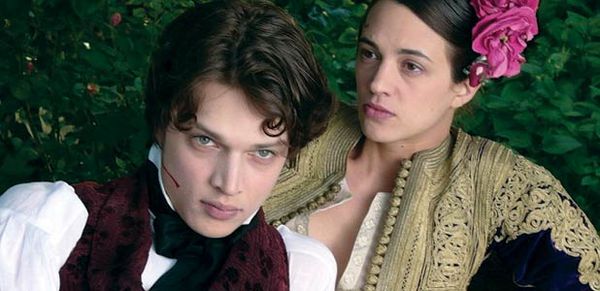Eye For Film >> Movies >> The Last Mistress (2007) Film Review
The Last Mistress
Reviewed by: Amber Wilkinson

Catherine Breillat is not known for crowd-pleasing. She has marked out her career by pushing the sexuality envelope, and in films such as Anatomy Of Hell, Romance and Fat Girl, she has frequently been accused by more conservative critics of putting pornography before a story. It is to be hoped that her notoriety in this department won’t put audiences off going to see what is surely her most mainstream movie to date. Although it deals with her favourite subjects of gender issues and female sexuality – and contains a fair amount of the steamy stuff – The Last Mistress is a lavish costume drama, chiefly about romance.
Ryno de Marigny (Fu’ad Ait Aattou in a fantastic debut) is rakish aristocrat. After sowing his wild oats around Paris he finally falls for blonde, beautiful and young Hermangarde (Breillat regular Roxane Mesquida).

Before Ryno can get hitched, he is quizzed extensively by Hermangarde’s gran (Claude Sarraute, a well-known writer in France, spellbinding in her first really serious stab at acting at the age of 80). Over the course of a night he ‘woos’ her by recounting his on/off 10-year relationship with wild Spanish aristocrat Vellini (Asia Argento) – but is he really prepared to give up his lover to be with Hermangarde forever?
Despite the initial premise and period being reminiscent of Dangerous Liaisons, the issues of fidelity and adultery are handled in an altogether less cynical fashion. Although there is strategy at work as well as romance, these are not conniving, Machiavellian types, bent on courtly games. Rather they are much closer to the star-crossed lovers of Shakespeare, with heart ruling head.
The indicators of decadence are all here, from opulent sets to gluttonous feasting. The costumes are lavish but never get in the way of the characters, who are all fully fleshed out and given added verve from the excellent cast. Argento was born to play the “goddess of capriciousness” Vellini, whose tongue is as sharp as the blade she uses to pin up her hair, and who isn’t scared to wield it in frustration. Her passion and hints at masculinity – violent tendencies, self-assurity, cigar smoking - are perfectly balanced by that of Fu’ad Ait Aattou as the androgynous Ryno – with the good looks of a Jean Paul Gautier model, he is feminine without being effeminate, sensitive without being soppy. Although Hermangarde, rather inevitably, pales in comparison to the larger than life Vellini, this adds to the drama of the 'love triangle'.
The supporting cast, too, are uniformly excellent, particularly veterans Michael Lonsdale and Yolande Moreau as rumour-mongers Le Vicomte de Prony and La Comtesse d’Artelles.
The writing and direction are also impressive. Breillat adapted the screenplay from the novel by Jules-Amédée Barbey d'Aurevilly and has deliberately opted for ‘old’ French cadences and language. This has been excellently translated into English and the subtitles retain a poetic quality. Quirky directorial touches – such as Vellini’s blowing of smoke rings, or a dimming of sound at key moments - put the audience into the head of the protagonist and help us connect us fully with the characters.
The idea of love being close to violence and madness is never far away – from Vellini lapping at Ryno’s blood, to clever juxtaposition of images, including the slaughter of a chicken. But the love-making itself is never seen as a violent act. It is, in fact, suitably erotic and engaging. Although the latter part of the film sees the passion ebb away slightly, as one too many plot points is introduced, this is still a most welcome departure for Breillat. In the press notes she says it was time for “new pastures” after Anatomy Of Hell. The grass is certainly greener here, let’s hope she stays.
Reviewed on: 17 Oct 2007

















